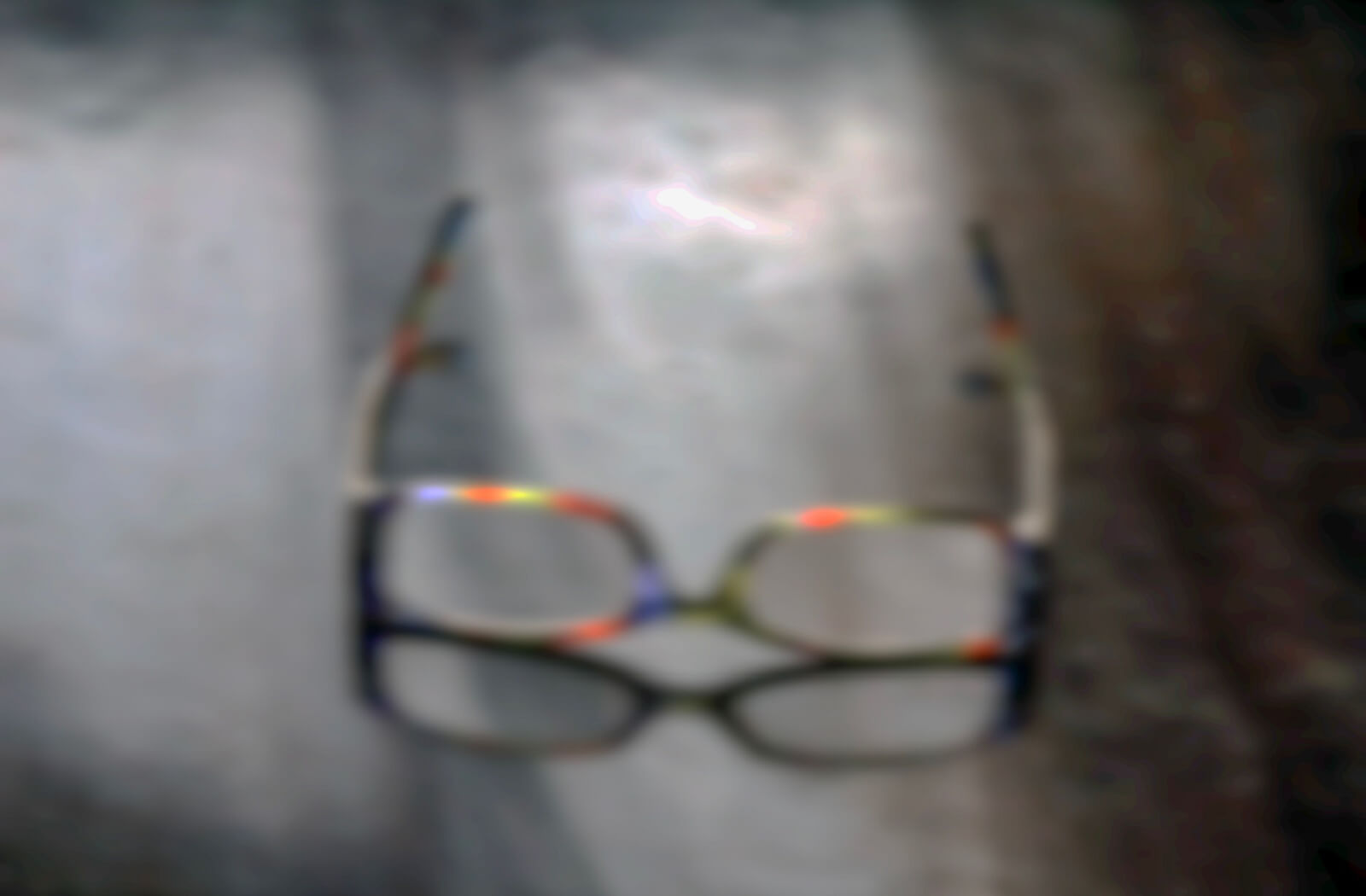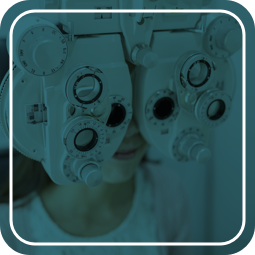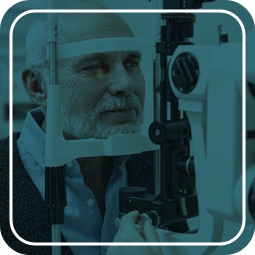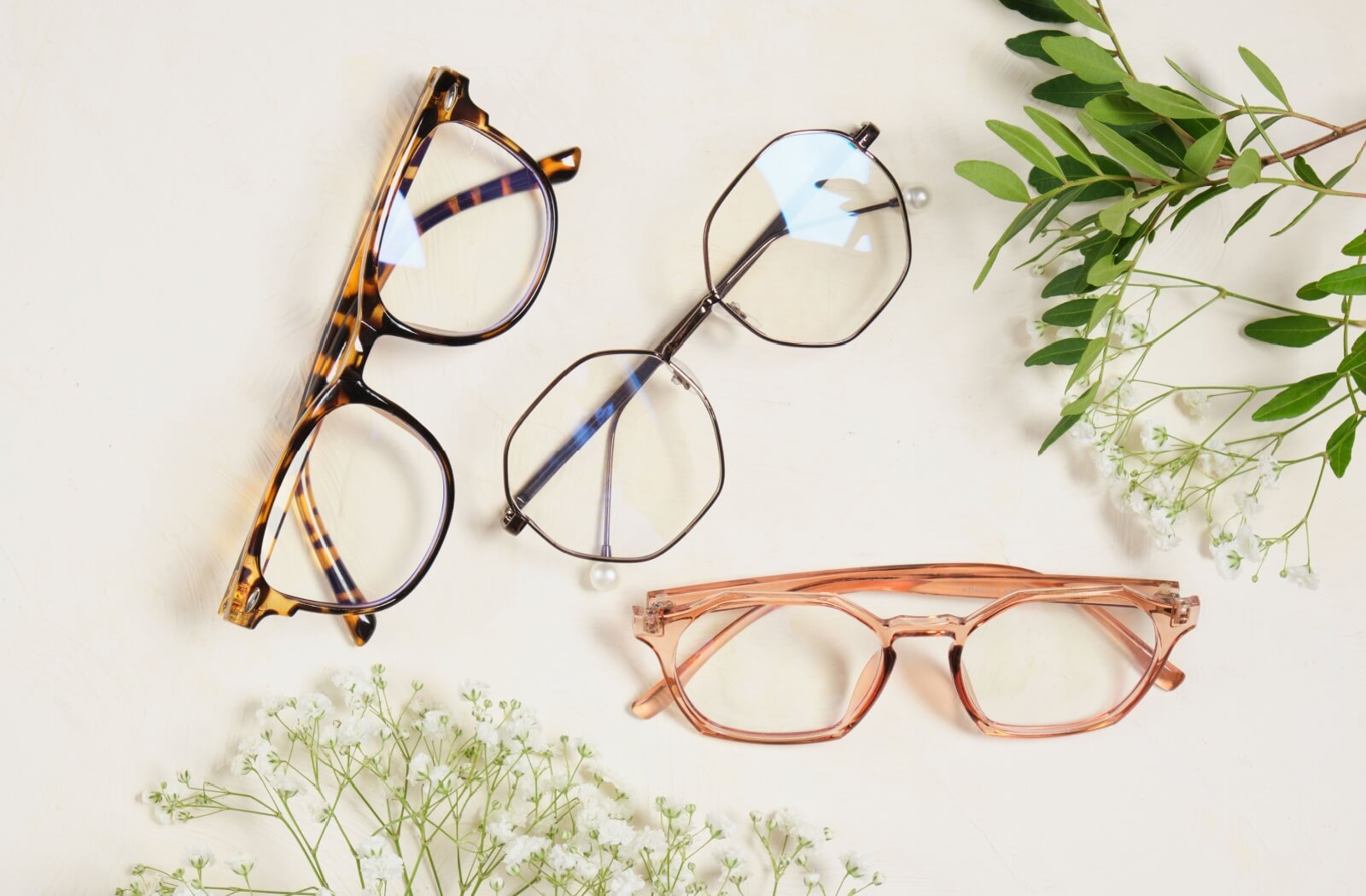You blink, and for a moment, your vision clears up, only to become blurry again. If this sounds familiar, you may be surprised to learn that dry eyes could be the reason for your fuzzy sight. This is a common issue that our team at Downtown Eye Care & The Contact Lens Department helps people manage, and it all comes down to the thin layer of tears that covers your eyes.
The connection is more direct than you might think, linking the moisture on your eye’s surface directly to how you see the world. Blurry vision is a frequent symptom of dry eye because a healthy, smooth tear film is a key part of focusing light correctly.
The Link Between Your Tears and Clear Vision
Think of your tear film as the first surface light passes through on its way into your eye. For you to see clearly, this surface needs to be perfectly smooth. When it’s not, your vision can become distorted and fuzzy.
How a Healthy Tear Film Works
Every time you blink, a fresh layer of tears spreads across your cornea, the clear front part of your eye. This tear film does more than keep your eyes moist. It creates a smooth, clear surface that helps properly focus light, which is a key step for sharp vision.
What Happens When Your Eyes Are Dry
When you don’t have enough tears or your tears are of poor quality, dry spots can form on your eye’s surface. This makes the surface irregular and rough. Instead of focusing light correctly, an uneven tear film scatters it, which is why you experience blurriness.
Signs Your Blurry Vision Comes from Dry Eyes
Blurriness from dry eye often feels different from other vision problems. Your sight might change throughout the day or even from one moment to the next. You may also notice other symptoms along with the blurriness, like a gritty or scratchy feeling.
- Your vision gets better for a short time right after you blink.
- You feel a gritty, scratchy, or burning sensation in your eyes.
- Your eyes appear red or are sensitive to light.
- Things look fuzzy after you spend a long time on a computer or reading.
- Your eyes produce a lot of extra tears, which can also make things blurry.

Common Sources of Dry Eye Syndrome
Dry eye is a common condition with a wide range of contributing factors. Certain health conditions, habits, and even your surroundings can affect how well your eyes produce and maintain tears.
Age and Health Factors
Tear production can slow down as you get older. Health conditions like diabetes, rheumatoid arthritis, and other autoimmune disorders can also lead to dry eyes.
Medications and Hormones
Some common medications, like antihistamines, decongestants, and blood pressure medicine, can reduce your tear production. Hormonal changes, especially during pregnancy or menopause, are another frequent contributor.
Your Environment and Lifestyle
Spending hours in front of a screen often means you blink less, which can cause digital eye strain and dry out your eyes. Dry, windy climates and indoor heating or air conditioning can also cause your tears to evaporate too quickly. Wearing contact lenses for long periods is another common factor.
How to Manage Dry Eyes and Blurry Vision
The good news is that there are many ways to find relief from dry eye symptoms. Simple changes can make a big difference, and an eye care professional can offer more specific treatments to help you feel and see better.
Simple At-Home Relief
Over-the-counter artificial tears can provide quick, temporary relief. Remember to take regular breaks from digital screens by following the 20-20-20 rule, where every 20 minutes you take a 20-second break and focus your eyes on something at least 20 feet away, and make a conscious effort to blink more often. Using a humidifier in your home can also help by adding moisture to the air.
Professional Dry Eye Solutions
If at-home care doesn’t provide enough relief, it’s a good idea to seek professional advice. An eye doctor in Ottawa can perform an evaluation to understand the specific reason for your dry eye and recommend a personalized treatment plan. This might include prescription eye drops or other in-office treatments designed for long-term comfort and clearer vision.
When to See Your Eye Doctor in Ottawa
While fluctuating blurriness is a common sign of dry eye, some vision changes require prompt attention. It’s important to know when to manage symptoms at home and when to book an exam.
A comprehensive eye exam can help identify the cause of your discomfort, so it’s a good idea to schedule an appointment if you experience any of the following:
- Blurry vision that doesn’t go away or gets worse over time.
- Dry eye symptoms that prevent you from doing daily activities.
- Pain, redness, or discomfort that doesn’t improve with artificial tears.
- A sudden and significant change in your eyesight.
Find Relief Today
Dealing with dry, blurry eyes can be frustrating, but you don’t have to manage it alone. Our team at Downtown Eye Care & The Contact Lens Department is here to help you find lasting relief and clear vision. Schedule your appointment today to discuss your symptoms and explore personalized solutions.














